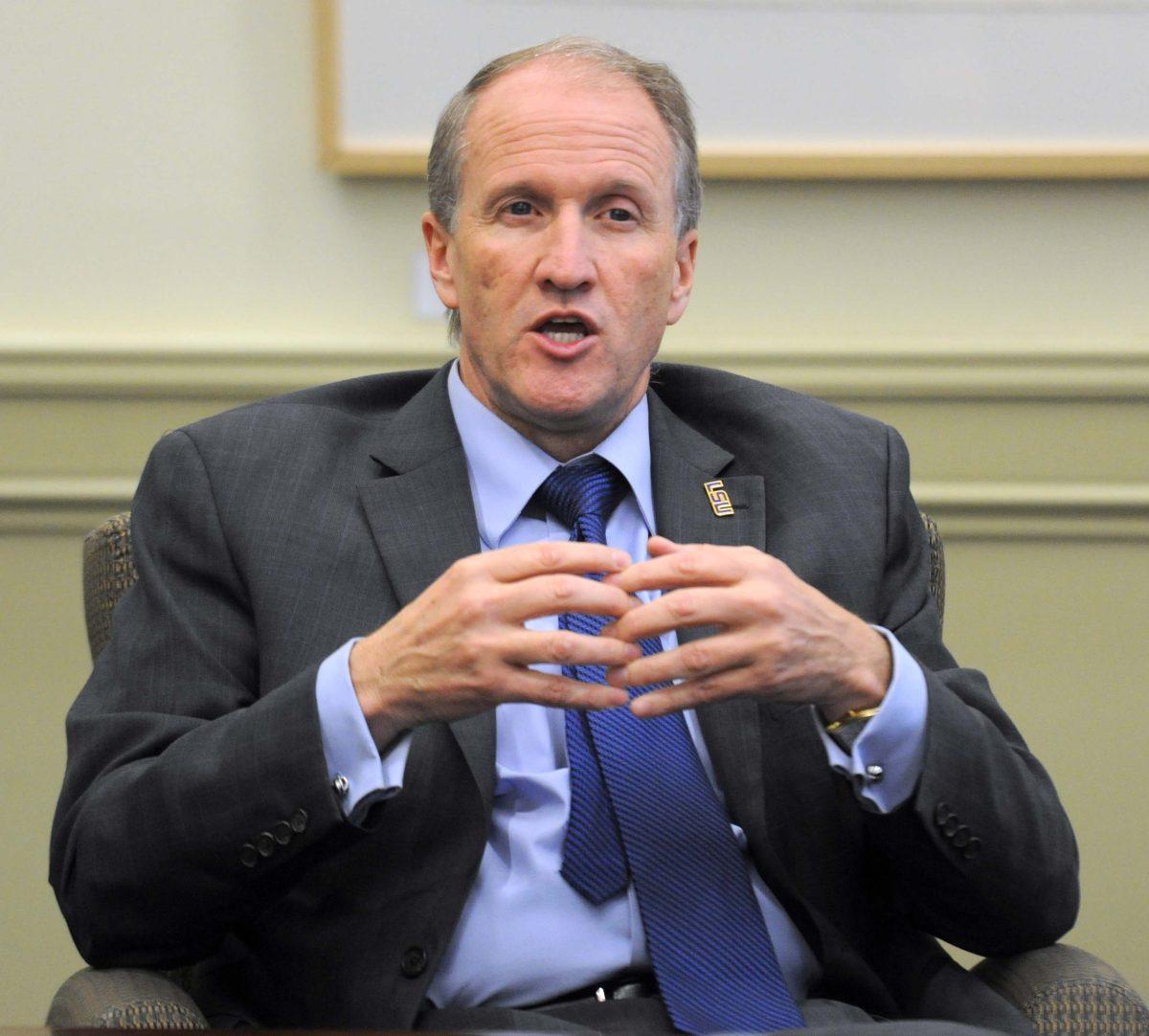University and faculty representatives got a first look Tuesday at the student technology fee spending proposals, but impending budget cuts could narrow the options down to one.
The Student Technology Fee Oversight Committee met to introduce proposals for projects from the Information Technology Services’ 2015-16 fiscal year budget financed by student fees.
The meeting started with Executive Vice Chancellor and Provost Stuart Bell addressing the committee.
Bell said with the uncertainty of higher education budget cuts’ severity, University administrators may ask the committee to allocate the $1 million funds, now going to discipline-specific projects, to support ITS.
“We’ve talked to a few students about this, and [they] do support using money to protect the core system that they need for schooling and services,” said Student Government president and committee student representative Clay Tufts. “It’s important that [the University] secures these services that are so vital to the success of students. [Giving this money] is something we will consider, but we’ll cross that bridge once we get there.”
After Bell’s address, STF Oversight Committee member Michael Smith, director of technical services for the user support and student IT enablement division of the ITS department, went over the proposals, including further upgrading the University’s Wi-Fi system, renovating computers and equipment around campus and an extra cost on the Moodle server.
The University adopted Moodle in 2008 and hired the company MoodleRooms to host the server.
Due to a change in management, MoodleRooms and the University are renegotiating the contract and could cause an extra $180,000 cost per year, with about $103,000 coming from Student Tech Fees.
“We have to have some sort of management system,” said Jane Cassidy, vice provost for human resources and facilities management. “That’s the way grades are done, how faculty sends things out to students, so we have to have it. My question to this development is, does it have to be Moodle?”
During the meeting, Smith said Moodle was the cheapest option for the University because the software itself is free, and all the funds go to paying for the hosting servers. Other software, such as Blackboard, are not free.
Cassidy said the University will stick with Moodle for the time being. Whether the student technology fee is allocated to ITS support, keeping Moodle functioning will require extra cost.
“Hopefully, we can get that number as low as possible,” Tufts said. “I know we talked about other software systems. We’ll see where that progresses, but hopefully we can move around money already in the tech fee so students will not have to pay more.”
The committee is also looking at a project to expand the previous upgrade to the University’s Wi-Fi, bringing wireless connection to areas like the Parade Ground.
Committee representatives began accepting proposals for discipline-specific projects to be funded through the student tech fee of fall 2014 for the first time since the University’s last major budget cut more than five years ago.
“I’m going to go through the proposal with my staff and present it to the rest of Student Government and generate some input on it so they can talk to their constituencies, and we can talk to the student body about how they want to prioritize [the funds],” Tufts said. “It’s our job to voice the opinions of the students.”
The committee will meet again March 24 to take a closer look on the proposals. The committee will also have more information on budget cuts in order to make the decision on the allocation of STF funds.
University committee looks at proposed funding opportunities
February 10, 2015
LSU Executive Vice Chancellor & Provost Stuart Bell speaks during the Student Tech Fee meeting Thursday, January 23, 2014 in Thomas Boyd Hall.
More to Discover









